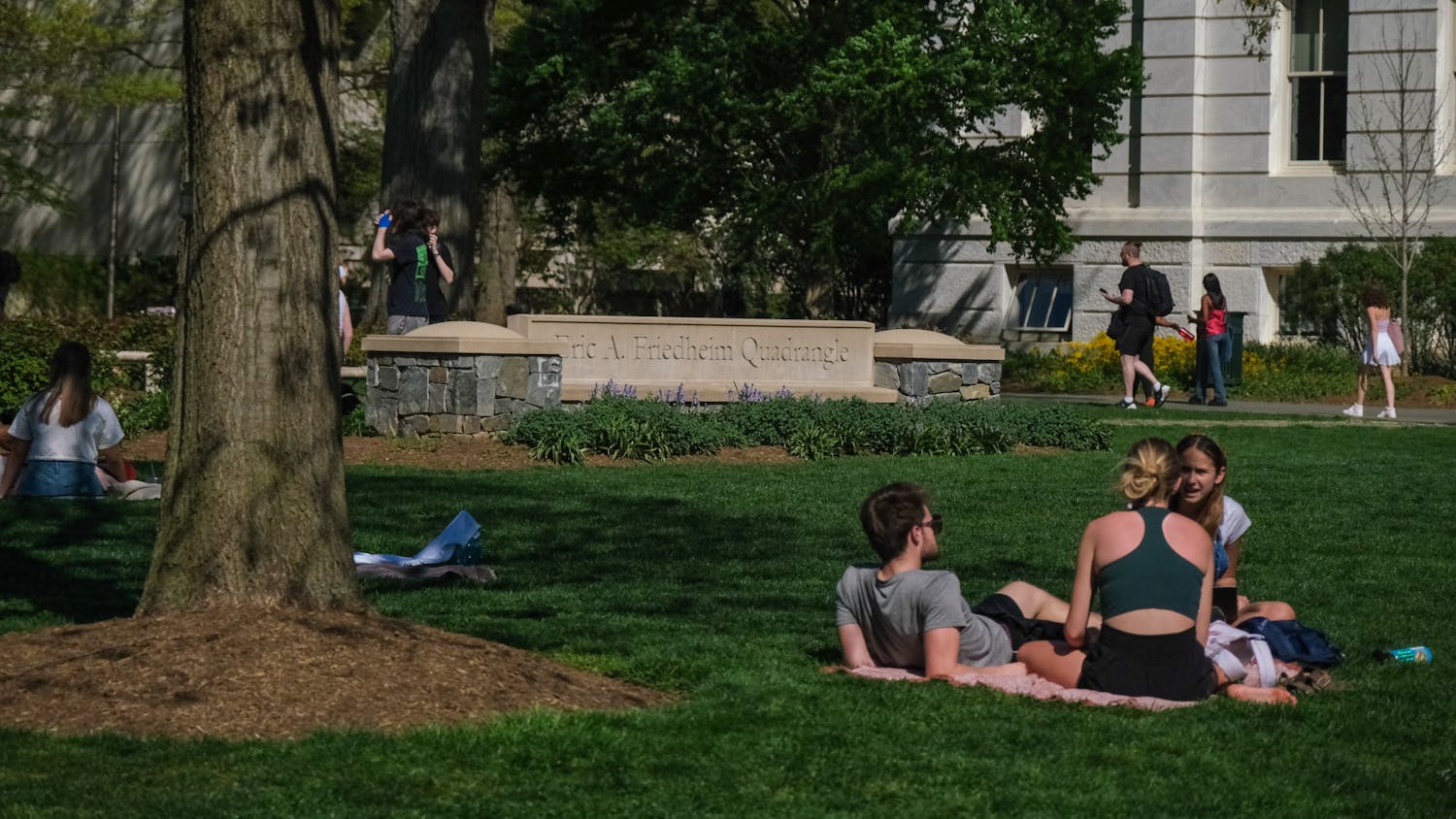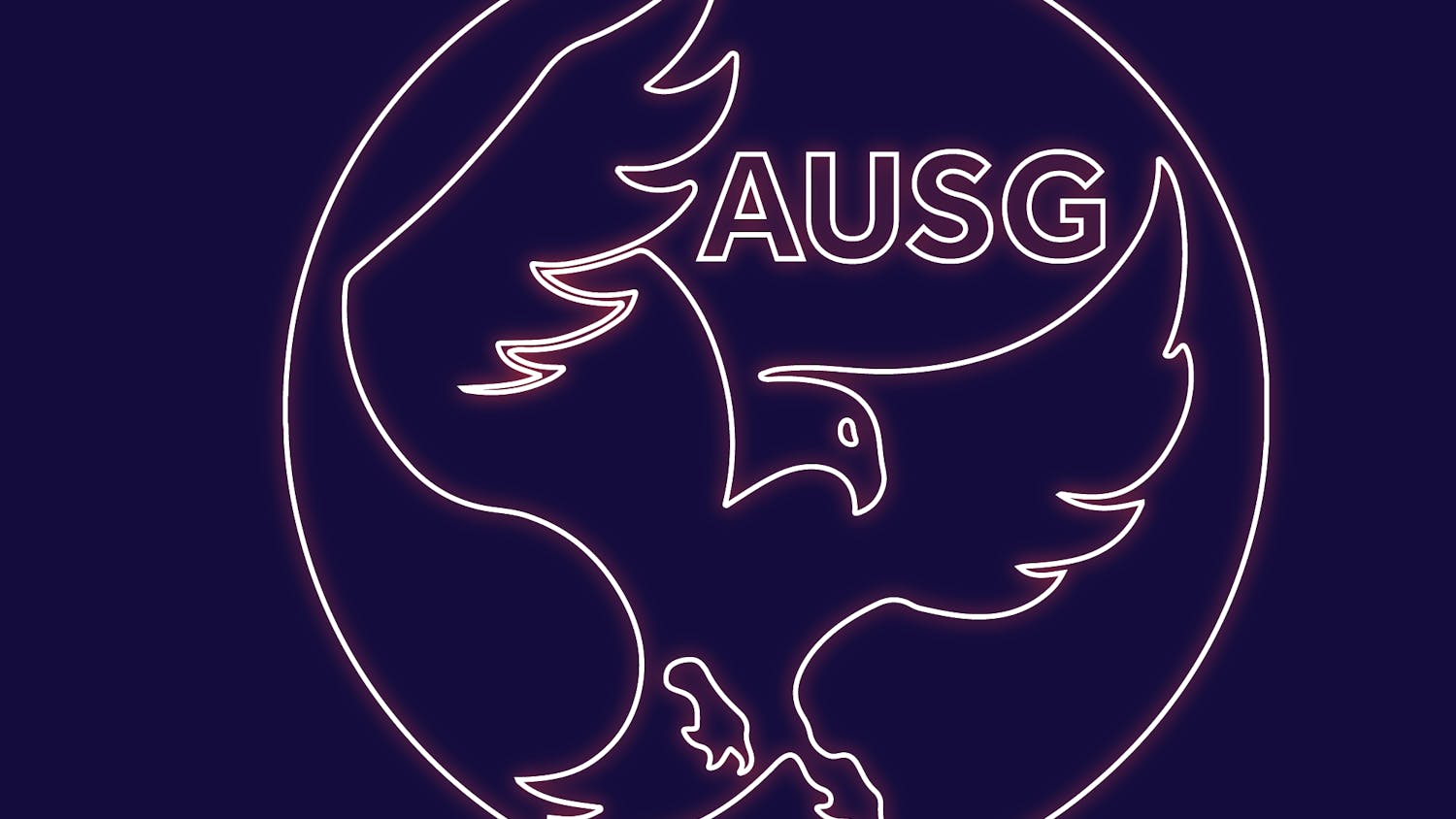For the first time at AU, there is an entire office dedicated to making campus environmentally friendly. Chris O’Brien, the university’s new director of sustainability, plans to make sure that it is successful.
Charged with creating a university-wide plan with sustainable policies and practices, the office is an expansion of the position of sustainability coordinator and is meant to provide the leadership, coordination and administrative support necessary to implement new policies.
“As a planet, we’re essentially in credit card debt,” O’Brien said. “Water, trees, air — we’ve overspent our resources and the first thing we have to do is stop spending.”
Hired this past summer, O’Brien brings years of experience working with sustainable trade and “green consumption.” Previously, he worked at the Center for a New American Dream as director of the Responsible Purchasing Network, and was also the managing director of the Co-op America Business Network and Fair Trade Federation. He’s also the co-owner of Seven Bridges Organic Brewing Supply Cooperative and recently wrote an award-wining book called “Fermenting Revolution: How to Drink Beer and Save the World.”
As director of sustainability, it is his job to help AU cut down on waste and eventually to achieve “carbon neutrality,” or zero net carbon emissions, which is the goal of a climate commitment signed last year by AU President Neil Kerwin. O’Brien hopes to do this through a comprehensive plan that targets not only visible pollution, like garbage or extra food from the dining hall, but invisible pollution as well, like the carbon dioxide emitted by daily operations on campus.
“Electricity is by far our worst source of carbon emissions,” O’Brien said, noting that it is responsible for over half of AU’s carbon emissions. “Solid waste is interestingly only a really small percent, which is funny because it’s so visible. The other really big chunk is travel to and from AU.”
While there are many environmental problems left to solve, AU is already making progress toward becoming more sustainable. Trash generated on campus is re-sorted to ensure everything recyclable is recycled. Approximately 43 percent of solid waste is recycled, according to the Office of Sustainability.
New trees are planted each year and pesticides are limited by using native plants that do not require spraying. The new School of International Service building will have solar panels and the latest technology to minimize environmental impact. Plans to put a wind turbine on campus are also under discussion, according to O’Brien.
But for AU to become sustainable, O’Brien is looking to AU’s community for support. Volunteers, feedback and creative solutions are welcome. EcoSense, AU’s environmental club, is also involved and plans to help with new projects.
“There’s so much people can do,” said Jennifer Jones, policy director of EcoSense. “We have new projects almost every week and would love any students to come out and volunteer.”
Ultimately, what both O’Brien and EcoSense want is to work with students to find ways to translate idealism into pragmatic, sustainable solutions.
“There’s no shortage of commitment, we all know we need to become more sustainable, the question is how,” O’Brien said. “We’ve got lots of potential strategies but we need lots of new ideas that are practical that can prove themselves to work. That is where students come into the picture.”
You can reach this writer at news@theeagleonline.com.




